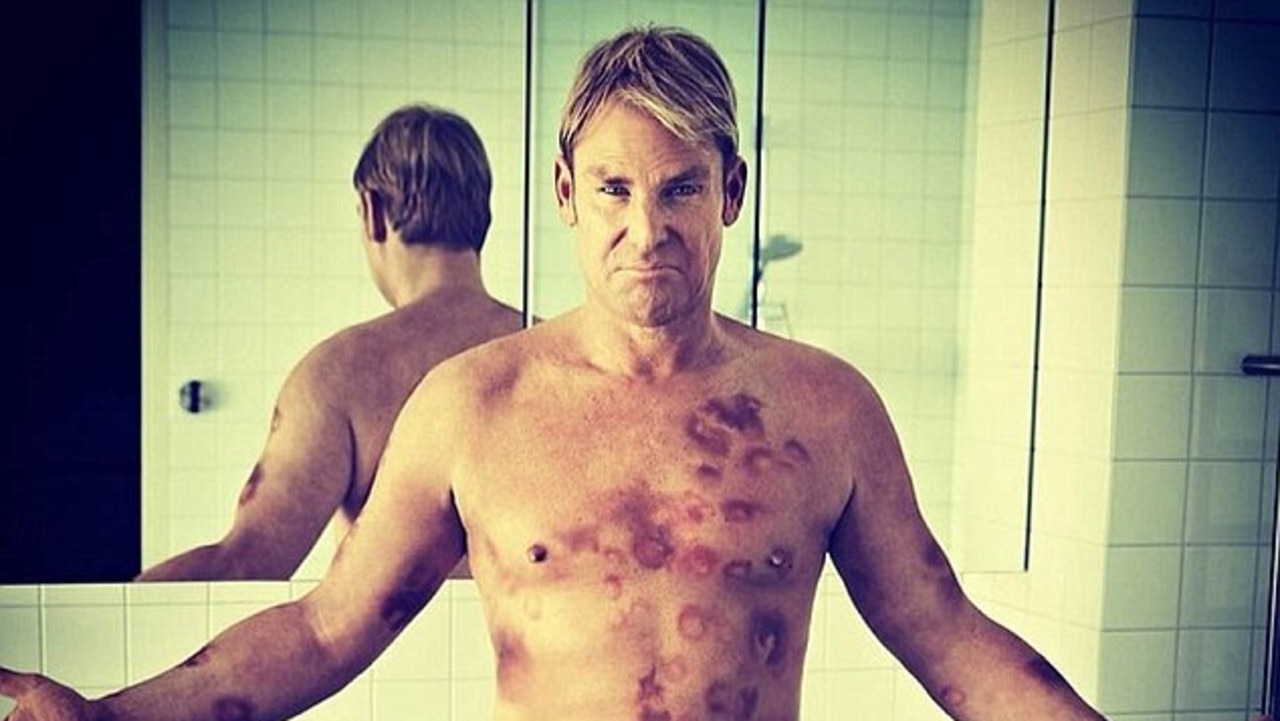This extreme diet could have played its part
Health experts are warning against “extreme” diets after it was claimed Shane Warne had “just finished” a juice cleanse before his shock death at age 52.

www.news.com.au

Health experts are warning against “extreme” diets after it was claimed Shane Warne had “just finished” a juice cleanse before his shock death at age 52.
The Australian cricket legend had
reportedly consumed only liquids for 14 days shortly before suffering a suspected heart attack in Thailand, his manager James Erksine said.
Exact details of Warne’s liquid diet are not known, but Erskine described it as a “ridiculous” juice “diet” during an interview with Nine’s
Weekend Today on Sunday.
Warne had also opened up about being 10 days into “operation shred” on his Instagram account, revealing in the last post before his death he was determined to “get back” into shape.
Despite being a sporting superstar, known as the “Spin King” for his superior bowling abilities, Warne loved food like the rest of us.
He often spoke about his love of baked beans, was photographed regularly with a beer and a pie, and shared snaps to his social media accounts of tasty treats he enjoyed including ice cream, crumpets and hot chips.
Warne had begun eating solids again before his death, with reports stating his
last meal was the classic Aussie staple of Vegemite on toast, prompting experts to warn of the dangers of crash diets.
Clinical nutritionist Leilani Finau said juice cleanses are prescribed on a short-term basis, explaining anyone who follows the restrictive diet for a prolonged period could experience “detrimental effects”.
“Juice cleanses are typically only used, or advised to be used, for 1-3 days,” the Sydney-based expert said.
However Leilani said prolonged juice cleanses can have a detrimental effect on the body due to the lack of calories and macronutrients (carbohydrates, protein, fat) consumed.
“Juices are further stripped of important fibres in processing, which is already a lacking nutrient of concern in Australian diets,” she said.
“They also lend the subject participating in the cleanse to undergo prolonged periods of fasting which can lead to dehydration, weakness, fainting, and headaches.”

This is a sentiment shared by Peta Carige, one of Australia’s leading sports dietitians, who warned that adopting “very low calorie” diets such as a juice cleanse can negatively impact our overall health.
“A juice cleanse is not sustainable because it creates yo-yo dieting habits,” she told news.com.au.
“This long term can create damage to your metabolism at a cellular level because your body doesn’t like being in a big calorie deficit, so it slows everything down for your body to cope.”





